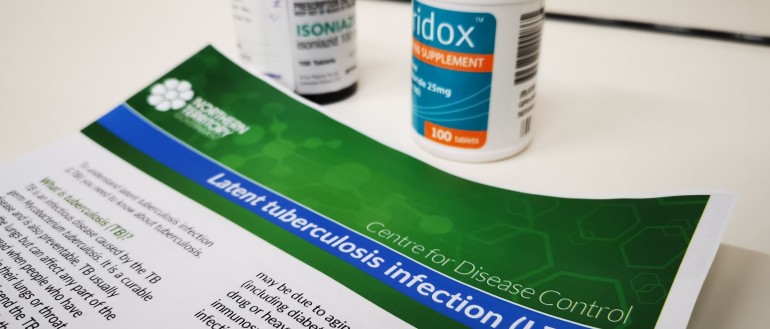Aims:
We aim to prevent TB disease through scaling-up of new shorter regimens for treating latent TB infection in the Northern Territory.
Objectives:
In this study we will:
- Implement a newer shorter rifapentine-based regimen for treatment of TB infection,
- Evaluate the effectiveness of the new regimen in improving treatment completion compared to the existing standard of care, and
- Assess feasibility, acceptability and cost-effectiveness of the new regimen in the Northern Territory
Summary:
Treatment of latent TB infection (LTBI) is a key strategy for the elimination of TB. Scaling up of effective treatment of latent TB is essential if Australia is to meet the global targets set under the World Health Organization’s End TB strategy. In the Northern Territory, nine-months of daily isoniazid is currently recommended for the treatment of LTBI, but less than 50% of those offered treatment complete it. A three-month LTBI treatment regimen consisting of 12 weekly doses of two drugs (isoniazid (H) & rifapentine (P), known as ‘3HP’) is safe and effective. This regimen shows promise for improving uptake and completion of LTBI treatment but is yet to be taken up widely in Australia. Darwin TB Clinic will implement 3HP for treatment of LTBI among patients in the greater Darwin area. We will evaluate the implementation of 3HP by measuring treatment completion, adverse events, cost-effectiveness, and patient and provider acceptance.
Implications for policy and practice:
This study will contribute to the evidence base around management of LTBI both in the Northern Territory and elsewhere in Australia. If the new regimen (3HP) is found to be superior, this will provide further evidence to support approval of rifapentine by the Therapeutic Goods Administration, which would in turn strengthen the case for incorporation of our model of care into national TB control guidelines.
Chief Investigator:
Project Manager:
Contact information:
Project dates:
- February 2021 - present

